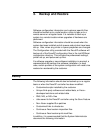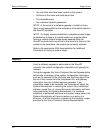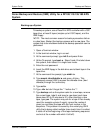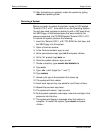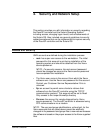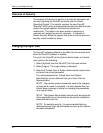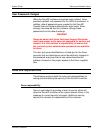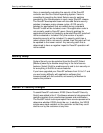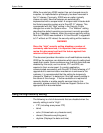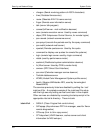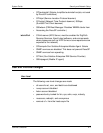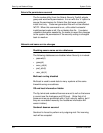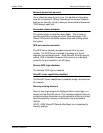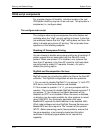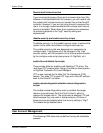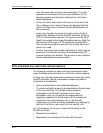
System Guide Security and Network Setup
Common Controller 4-5
While the underlying XDSS content has not changed since its
inception, its implementation philosophy has been reversed in
the 3.7 release. Previously, XDSS was an option typically
chosen at install. Now the features are automatically
implemented with a scrape install. A scrape install includes both
the Solaris operating system and a DocuSP 3.7 release. This
corresponds with the “High” setting in the Security Profile
dialogue box under the System menu. The “Medium” setting
describes the default operating environment normally provided
by Sun. Upgrades, however, retain the previous security setting.
Note that if XDSS was disabled in 3.6 and DocuSP is upgraded
to 3.7 without an OS reload, the security setting will be medium.
WARNING
Since the “high” security setting disables a number of
commonly used services, it is important that customers
review this document and test this feature against their
mission-critical applications.
This document provides information on all modifications made by
XDSS so the customer can determine which security setting best
meets their needs. Some customers may find that some features
disabled by this script, such as telnet, FTP and NFS, are
required in their environment. If a certain application
communicated successfully with DocuSP 3.6 fails following a 3.7
upgrade but its communication mechanism is unknown to the
customer, it is recommended that the setting be temporarily
changed to “Medium” to determine if the high security setting is
the cause of this change. If further assistance is required to
manually disable or enable specific services listed in this
document, please contact the Customer Support Center or the
appropriate Sun documentation.
Using the High security setting
The following is a list of documents that are disabled when the
security setting is set to “High”:
• FTP (including anonymous FTP)
• telnet
• echo (Echoes back any character sent)
• discard (Discards everything sent)
• daytime (Displays the date and time)



